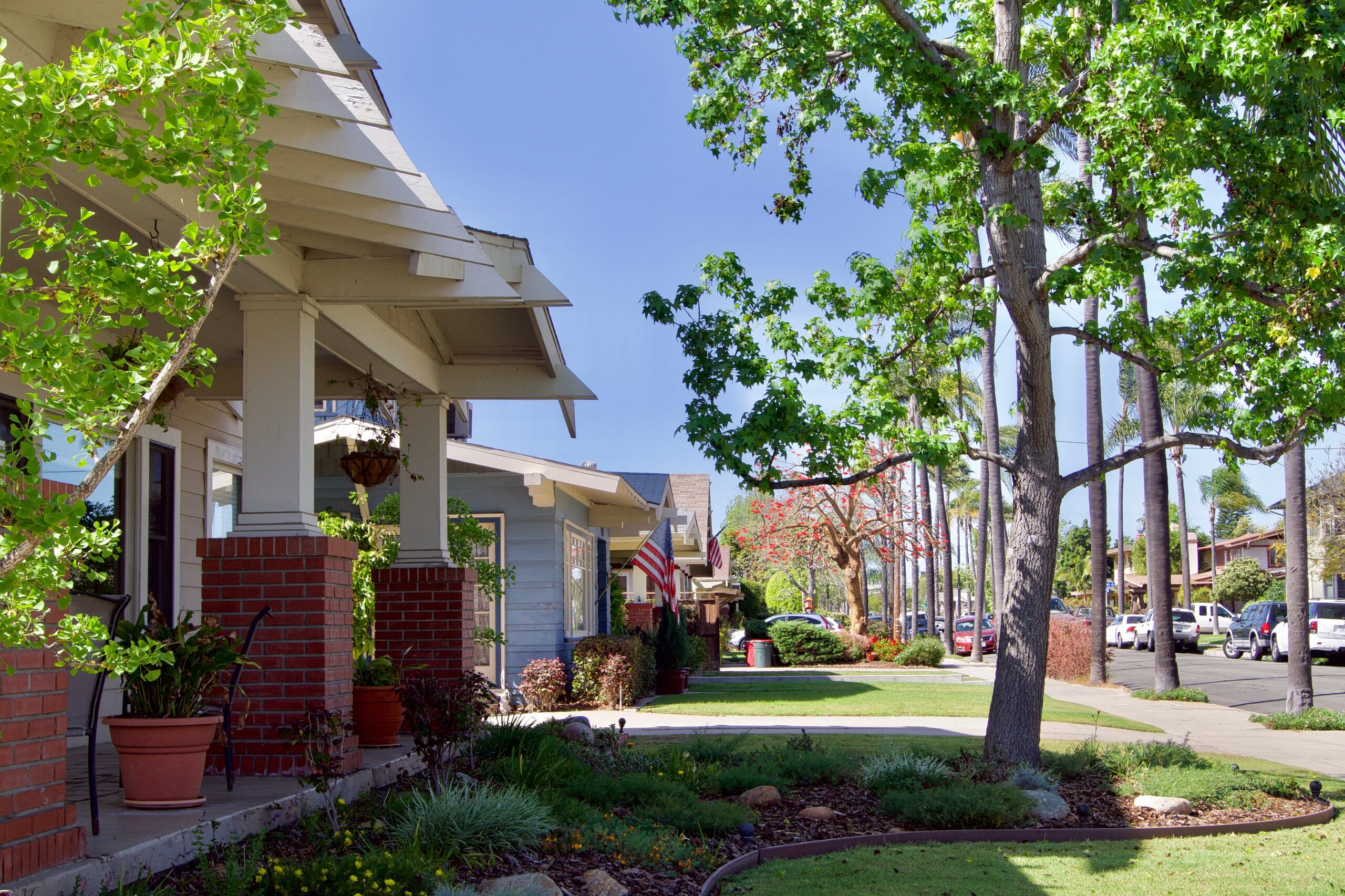Nevada HOA website requirements 2026 – What you need to know
Most states don’t legally require HOAs to maintain a website; however, Nevada does. What does that mean for your community? And can you just use Facebook instead?
We address those questions, and offer some best practices for building and maintaining an HOA website, in this article.
Table of contents
- Most HOAs in Nevada are legally required to maintain a website
- Owners can make online payments through a website
- What if my community has fewer than 150 units?
- Why does my HOA need a website?
- Why can’t we just use Facebook?
- Tips for building and maintaining an HOA website
Most HOAs in Nevada are legally required to maintain a website
Common interest communities (otherwise known as HOA and condo associations) in Nevada with 150 units or more are required, by law (NV Rev Stat § 116.31069), to have a website or electronic portal that is accessible to all owners.
This law is not new. It was passed in 2021 and came into effect on January 1, 2023.
Below is a more detailed overview of the website law:
CHAPTER 116 – COMMON-INTEREST OWNERSHIP (UNIFORM ACT)
Establishment and maintenance of an internet website or electronic portal
Each association of a common-interest community that contains 150 or more units shall establish and maintain a secure internet website or electronic portal that may be accessed by any unit’s owner.
The association shall make available on the website or within the electronic portal the following documents:
(a) The governing documents
(b) The annual budget of the association and any proposed budgets
(c) The notices and agendas for any upcoming meetings of the association
So, in addition to having a secure website or portal, the HOA must have the association’s governing documents, annual budget and proposed budgets, and notices and agendas for upcoming meetings.
Only a few states have HOA website requirements at this time; however, more states could reasonably implement similar laws since the impact of having such a mandate is overwhelmingly positive for owners and HOAs as a whole.
Owners can make online payments through a website – provided certain requirements are met
The same set of laws also addresses online payments. The HOA website or portal may provide owners with the ability to pay fees or dues electronically only if:
(a) The association or payment processor maintains a policy of cybersecurity insurance in a minimum aggregate amount of $5,000,000 that provides coverage for potential losses associated with the unauthorized acquisition of personal information provided to process payments through the website or electronic portal, including, without limitation, losses caused by identity theft.
(b) For an association that has contracted with a payment processor that maintains a policy of cybersecurity insurance described in paragraph (a), the association must still hold its own policy of cybersecurity insurance in a minimum aggregate amount of:
- $250,000 for associations with 150 or fewer units
- $500,000 for associations with 151 – 249 units
- $1,000,000 for associations with 250+ units
(c) The website or electronic portal allows the association or payment processor to suspend an owner’s ability to make a payment through the site or portal if past due obligations are assigned to a third party for collection.
(d) The association or payment processor complies with the requirements of NRS 603A.010 to 603A.290, inclusive, with respect to any personal information collected through the website or portal.
(e) The board has conducted an evaluation of the costs and benefits of providing owners the ability to pay fees online.

In summary, the board must evaluate whether it’s in the association’s best interest before introducing online payments through a website or portal. That includes assessing the costs of cybersecurity insurance.
What if my community has fewer than 150 units?
Smaller condos and HOAs with fewer than 150 units are encouraged to have a website or portal, but are not legally required to maintain one.
You do not need a website if your Nevada HOA has less than 150 units.
Why does my HOA need a website?
Lawmakers generally pass website legislation to help improve transparency, trust and engagement within community associations.
Owners have a right to view records
Sometimes, owners find it difficult to obtain important information such as budgets, policies or meeting details. Replies from management might be too slow, or their requests are altogether forgotten.
The important thing to highlight here is that, with a few exceptions, owners have a right to see HOA records.
Putting them online helps to ensure those records are readily available. Moreover, staff don’t have to spend time looking for physical records, and owners don’t need to pay photocopying or retrieval costs.
Communities are more organized
A website or portal serves as a single, authoritative source for community information. Most people find it more convenient to get on a computer or smartphone to look up something than to physically go to an office and ask someone for that same information. With a user-friendly website, owners know exactly where to go to find what they need.
Websites can be tailored to provide more than the required information, too. Adding links to forms, amenity hours and rules, and contact information for preferred vendors, promotes smoother operations and reduces frustrations.
Furthermore, HOAs websites ensure everyone has access to the same, up-to-date information, effectively minimizing misunderstandings and confusion.
Reduced workload for the board and management
Some admin work, such as collecting payments, manually processing maintenance requests, and responding to routine inquiries, can be drastically reduced with the help of website automation.
Less busy work means your board or manager has more time to focus on high-level work.
Why can’t we just use Facebook?
Virtually every HOA has an unofficial Facebook group, and that’s not a bad thing. Owners can share announcements or information from the board with others, have discussions with their neighbors, and even sell items using a social media platform.
But, this is not the tool for community management, and any HOA attorney will advise boards to stay far away from Facebook and other social media groups.
There are a few reasons for this. For starters, it’s not easy for an HOA to control the narrative, especially if owners have the option to post anonymously. People often use this platform to complain, and conversations can escalate quickly. Board members should not be engaging in these conversations. Doing so can expose the community to liability issues, or, at the very least, create additional conflict between the board and other members.
Social media platforms aren’t designed for organizing and storing important documents like bylaws, CC&Rs, budgets and meeting minutes in an easily accessible way. HOA websites, on the other hand, are designed for HOA-specific requirements.
Finally, social media platforms can change their policies at any time without requiring consent from users. These platforms don’t offer the level of security required for sensitive HOA documents and communications.
Tips for building and maintaining an HOA website
Perhaps your HOA didn’t need a website, but is interested in building one now. Or, maybe it’s time to get a site that better serves the community’s needs.
Regardless of your experience with HOA websites, these tips can help you find a solution that meets your needs and your budget.
Make a list of your HOA’s requirements and wishes
Your HOA website should be as unique as your association.
In addition to necessities, such as having a password-protected section for owners and a place to store documents, consider what features or functionalities you could include to improve communications or reduce the workload for staff and the board.
Many HOA-specific platforms go beyond the basics and can support online payments, maintenance request management, voting, classifieds, and more.
Your owners might not need so many extras, and that’s okay too. Just make sure the features that you do select are useful to owners and staff.
Determine if a DIY or professional website design option is best
Website builders like Wix, Squarespace, and WordPress are popular and well-loved by businesses and individuals alike.
DIY platforms are almost always the more affordable choice. Bu,t the HOA needs to ensure that someone has the skills and the time to build the website.
The other option is to pay a company to build the website for your HOA. Since the website is customized, the price range can vary quite a bit depending on complexity, design, and the number of web pages.
HOA Sites balances professionalism with affordability.
HOA Sites provides HOA communities with a platform that makes it easy for them to build their own sites. However, the templates they offer are not mass produced. Instead, the company’s web designers build custom templates for every community.
With access to over 60 features, HOA Sites goes well beyond the standard HOA website. And the price is hard to beat.
People who feel a bit uneasy about putting together a website will be relieved to know that HOA Sites always provides a Personal Project Manager. This person offers suggestions and their expertise throughout the entire building process. That way, you can complete your HOA site with confidence and precision.
Ensure your board or manager can make easy updates
Since documents and event dates require frequent updates, it’s best if someone from the board can make those changes on the site by themselves. If you need to call a developer every time a meeting notice needs to be posted, you might end up paying more than you planned to.
Keep mobile usage in mind
Owners will be using the website from their smartphones. It’s important to make sure that the platform is mobile-friendly and provides owners with a smooth experience.
Evaluate how much you can spend annually to maintain your website
In addition to paying a one-time fee to build a website, the HOA will need to pay recurring fees to keep it up and running. Costs may include domain name registration, web hosting, the SSL certificate, and plugins and premium addons.
Little costs can add up, so ask about recurring costs before you agree to anything.
Conclusion
If your HOA is in Nevada and has 150+ units, then it is legally required to have a website. While this isn’t a new law, it can be helpful for HOAs to understand why the law was passed and what it aims to achieve.
If your HOA is smaller, but you’re thinking about getting a website to manage communication and documents, give it a try! You might be surprised by how quickly your site generates traffic.




